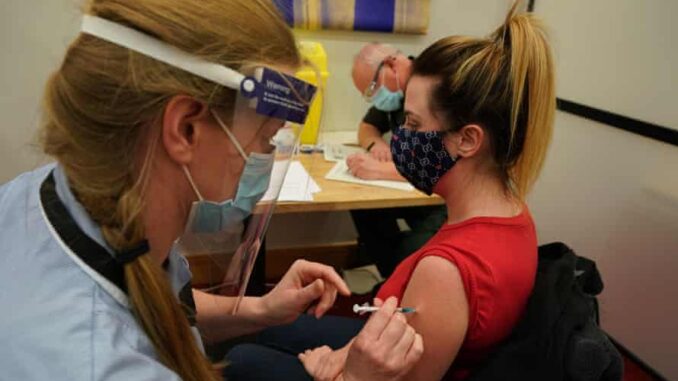
Compulsory vaccinations will worsen the already disastrous staff shortage, and risk making life worse for residents
When the government announced it was going ahead with the mandatory vaccination of staff in older people’s care homes in England, it wasn’t a surprise. At least 40,000 care home residents have died of Covid-19 so far in England and Wales, along with hundreds of valiant workers.
Surely we have to do everything feasible to prevent these figures going even higher as a result of the Delta variant, or any future variants. There’s no doubt that this is what the government is seeking to achieve in moving to a compulsory vaccination approach – it’s a defensive strategy, based on the fear of a challenging winter battling coronavirus, plus maybe seasonal flu, to come.
Yet I know that Age UK was by no means the only organisation with an interest in social care that did not express full-blooded support for the idea when responding to the government’s recent consultation. Of course, it is in older people’s best interests for everyone who engages with them to be fully vaccinated, whether they live in a care home or their own home. What we were less convinced about was whether compulsorily vaccinating this particular group of care staff, and doing it now, is the best way of getting there.
The big potential problem with going down the mandatory path is that it may cause some care home staff to move to another job they can do without having their Covid-19 jabs. There is huge annual churn in social care, with as many as one in three staff leaving their roles. Some quit care altogether but many go to another company, lured by better terms and conditions. Care home staff could also move to become healthcare assistants in the NHS, with better pay and prospects for doing an almost identical job – one of many problems that bedevil social care recruitment and retention.
The risk of some vaccine-hesitant care home staff leaving would matter much less if the care workforce was in better shape overall. There are some 120,000 vacancies, so about one in 10 roles are unfilled. Social care is the consummate “people job”, so the quality of care someone receives in a care home, for example, depends not only on the skills of the staff but on there being enough of them. An older person with advanced dementia may require painstaking one-on-one support to eat and drink enough during the day. If that’s impossible because of understaffing then they are at major risk of malnutrition and dehydration, threatening their health and even their survival. One of the strongest arguments against mandatory vaccination, therefore, is that it risks making an already challenging workforce situation worse, with awful consequences for residents. Remember, too, that these new regulations will hit temporary agency staff, on whom care homes have previously relied to fill gaps, as well as permanent workers.
This is not the only recent blow to the social care workforce. Brexit and the immigration rules that the government subsequently introduced mean that, as things stand, care workers from the EU will be unable in future to come here to work. There are anecdotal reports that Brexit has led to some existing EU care staff returning home. Such staff are mostly clustered in London and other big cities, some of the places where vaccine hesitancy among staff is also known to be most prevalent – partly because there are greater numbers of black African staff who academic research have found to be considerably more averse to taking up the vaccine than their white British counterparts. Care homes in these areas therefore potentially face a double whammy as regards staffing, if mandatory vaccination leads some workers to leave, on top of Brexit.
I could contemplate mandatory vaccination as a last resort, but I’m not sure that everything that could be done to encourage voluntary take-up among care home staff has been fully tried. The NHS has run some excellent myth-busting webinars for care workers, but many will no doubt have missed out. The experience to date is that hyper-local approaches, based on peer-to-peer support, really do work. With the government announcing a 16-week grace period before the new regulations bite, I hope care homes and councils will work together to encourage every worker who is yet to take up their jab to do so, especially in those areas with the furthest to go.
This policy change would have landed so much better if it had been part of a funded package of reforms, designed to give care workers the professional respect they richly deserve, and pay and conditions to match. It’s not impossible that this will come later in the year but, on its own, mandatory vaccination feels to me and many others like too much stick and not enough carrot for a workforce who have given their all and been through the fire these past 15 months, quite possibly with more to come.
- Caroline Abrahams is charity director for Age UK
- This article was amended on 30 June 2021 to remove a line saying that under the new policy “only staff members in care homes for older people are required to be vaccinated [which] means that a worker could move to a care home helping young disabled adults, or into domiciliary care instead”. At the time the article was written, the plan was limited to care homes for older people. But during a delay in publication of this piece, the requirement was extended to all Care Quality Commission-registered care homes.


Be the first to comment